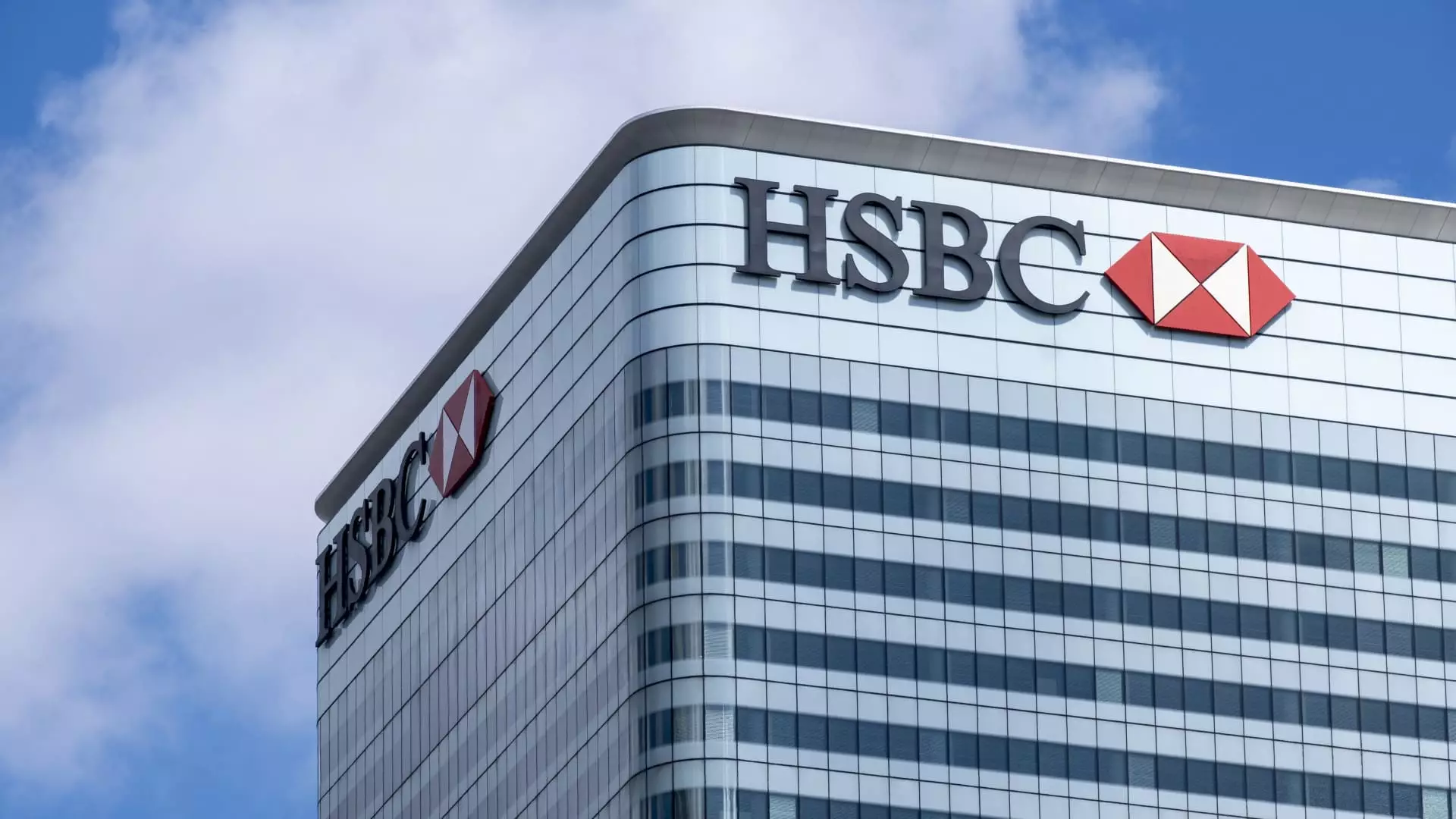HSBC, renowned as Europe’s largest bank, recently disclosed its third-quarter earnings report, showcasing a robust performance that outstripped analysts’ expectations. The bank reported a pre-tax profit of $8.5 billion, a substantial increase from the $7.71 billion recorded in the same quarter a year earlier. This impressive figure surpassed the anticipated $8 billion, reflecting not just resilience but also the influence of steady revenue growth across its wealth and personal banking divisions. With quarterly revenue rising to $17 billion, up from $16.2 billion previously, HSBC’s capacity to navigate the market challenges while enhancing its profitability is noteworthy.
The focus on share repurchase plans, now amounting to a total of $9 billion announced this year, illustrates HSBC’s strong financial position and its commitment to returning value to shareholders. The recent decision to initiate a buyback of up to $3 billion in shares signals confidence in its current valuation and future prospects. Moreover, the approval of a third interim dividend of $0.1 per share denotes a proactive approach to maintaining shareholder engagement, even in a climate where many banks grapple with tightening margins.
HSBC’s results come alongside a declining trend in net interest margins, which dropped to 1.5% from 1.7% a year ago. This shift raises essential questions regarding the sustainability of profit levels as the era of low-interest rates begins to impact banking operations more significantly. Observers like Michael Makdad from Morningstar noted that despite narrowing margins, HSBC’s net interest income has remained stable. This reflects the complex dynamics at play, as banks balance the challenges of a changing interest rate environment while striving for growth.
As rising interest rates have historically benefited banks, the transition to lower rates may present headwinds. HSBC’s ability to maintain profitability in such circumstances will hinge on its strategic choices and operational efficiencies. The largely stable banking net interest income showcases the bank’s resilience and strategic positioning, but long-term sustainability will depend on how effectively it adapts to the evolving economic landscape.
In light of these pressures and opportunities, HSBC is undergoing a significant internal restructuring. The appointment of Georges Elhedery as CEO marks a new chapter for the bank, especially as the organization prepares to streamline its operations significantly. By dividing its structure into Eastern and Western markets, HSBC aims to enhance its operational efficiency and agility. This two-pronged approach could help mitigate duplicative processes and decision-making delays, fostering a more responsive organization.
The restructuring plan is also associated with substantial cost-saving initiatives targeting approximately $300 million, signaling HSBC’s commitment to judicious expense management. Reports of potential leadership shifts within the bank underscore the seriousness of placing a tighter rein on costs. This strategic direction aligns with an industry-wide trend, as banks seek to optimize their structures amid growing competition and changing market conditions.
As HSBC moves forward, several critical factors will underpin its success. While the bank’s recent earnings report reflects strong numbers, the overarching question remains: Can it sustain this momentum in an increasingly uncertain economic environment? The challenges posed by falling interest rates could impact profitability, compelling HSBC to innovate and optimize its operations continuously.
Furthermore, the effectiveness of its restructuring initiatives and implementation of its new organizational structure will be critical. Ensuring that the bank remains both competitive and efficient in a rapidly evolving banking landscape requires strategic foresight. As HSBC embraces this period of transformation, stakeholders will undoubtedly be keeping a close eye on the execution of these plans and their implications for the bank’s long-term success and profitability.
Ultimately, HSBC’s recent performance raises cautious optimism while reinforcing the need for agility in response to market changes. By focusing on strategic growth areas and maintaining a disciplined approach to expense management, HSBC is well-positioned to navigate the complexities ahead.


Leave a Reply